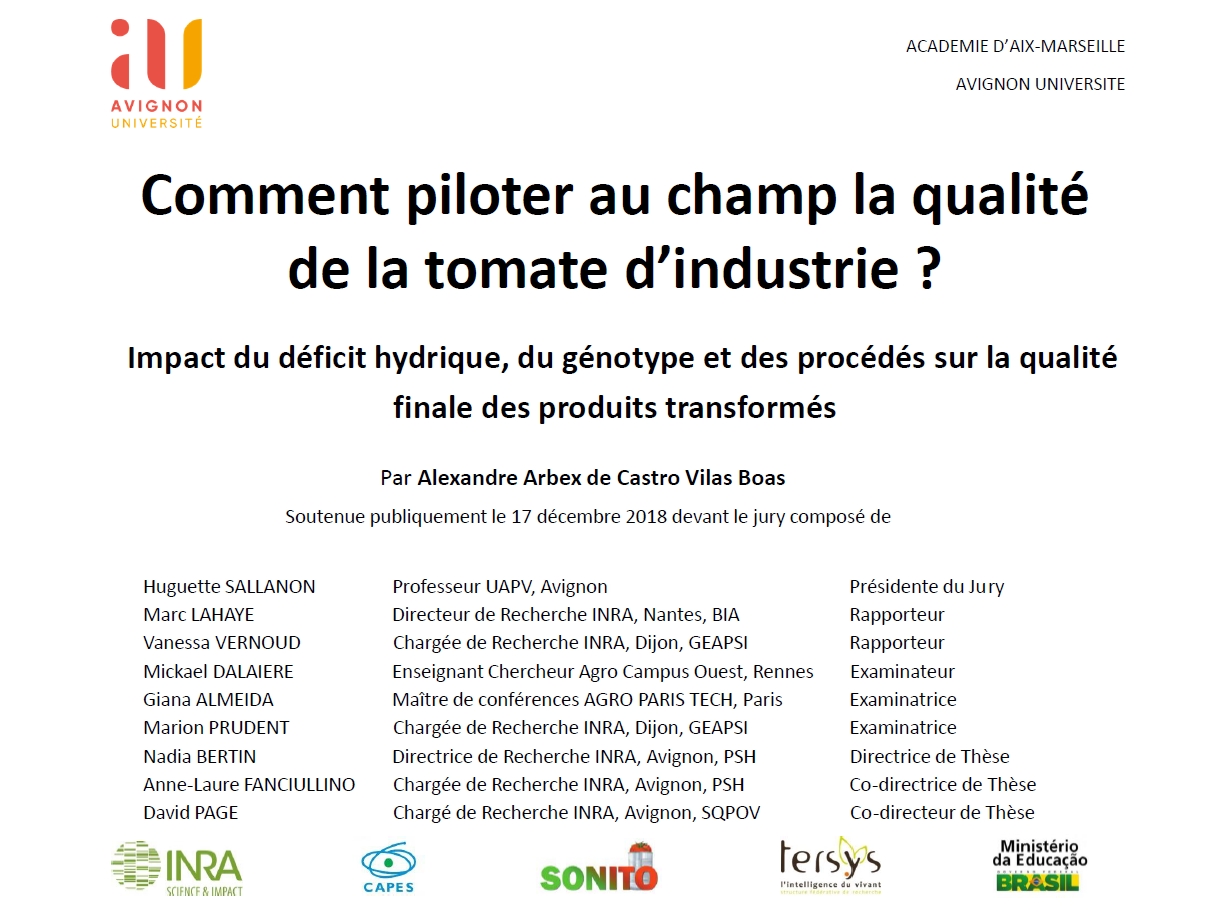Respect for your privacy is our priority
The cookie is a small information file stored in your browser each time you visit our web page.Cookies are useful because they record the history of your activity on our web page. Thus, when you return to the page, it identifies you and configures its content based on your browsing habits, your identity and your preferences.
You may accept cookies or refuse, block or delete cookies, at your convenience. To do this, you can choose from one of the options available on this window or even and if necessary, by configuring your browser.
If you refuse cookies, we can not guarantee the proper functioning of the various features of our web page.
For more information, please read the COOKIES INFORMATION section on our web page.


 Although works to better understand pre-post-harvest links exists, better adapting production to changing climatic constraints is a challenge for the industry tomato, and is the context of this thesis. Its objectives was to analyze during the chain of production and processing, the impact of agronomic and technological factors on the quality of tomato purées, and to identify levers to improve the quality and environmental impact of manufactured products. This work was designed to analyze:
Although works to better understand pre-post-harvest links exists, better adapting production to changing climatic constraints is a challenge for the industry tomato, and is the context of this thesis. Its objectives was to analyze during the chain of production and processing, the impact of agronomic and technological factors on the quality of tomato purées, and to identify levers to improve the quality and environmental impact of manufactured products. This work was designed to analyze:



























